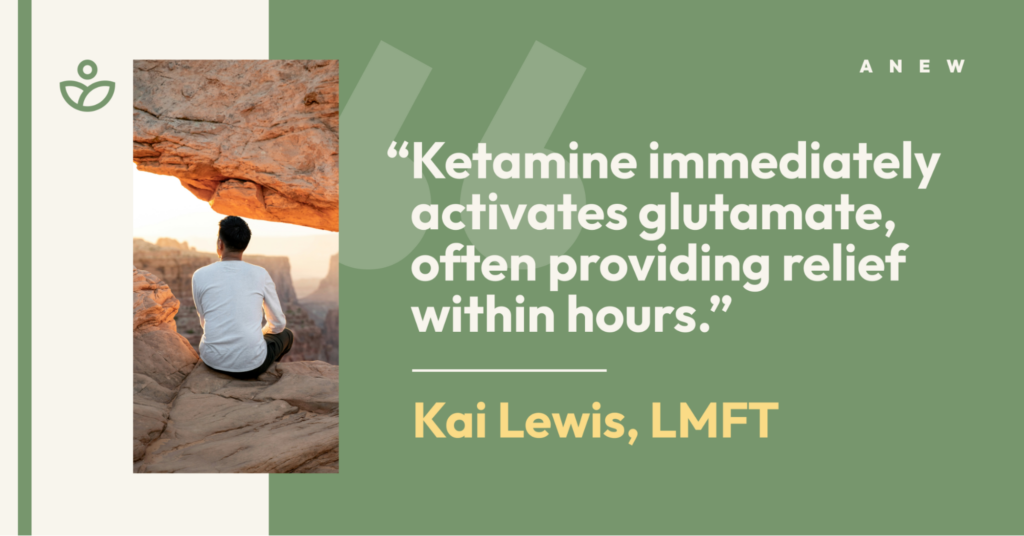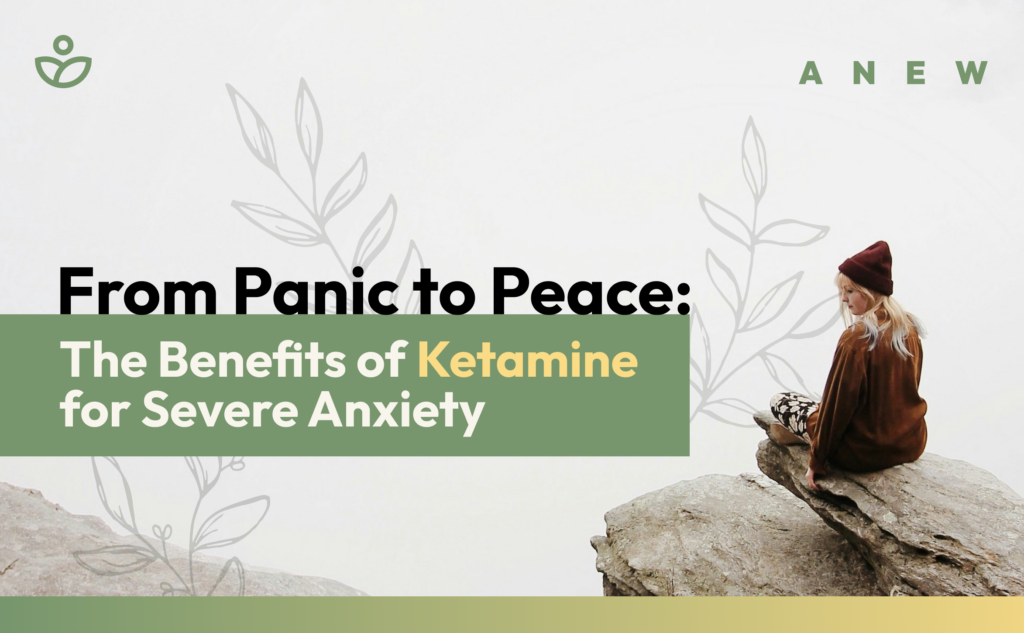How Ketamine Therapy Can Transform Severe Anxiety
If you’re struggling with chronic anxiety that just won’t budge, exploring ketamine for severe anxiety could be a game-changer. Here’s why:
- It provides fast-acting relief—often within hours.
- Works where traditional treatments fall short.
- Supported by increasing scientific evidence.
Anxiety disorders affect millions of people worldwide, disrupting daily lives and making simple tasks feel overwhelming. Traditional treatments like SSRIs, benzodiazepines, and talk therapy can take weeks or even months to show results. For many, these methods are just not enough.
This is where ketamine therapy steps in. Originally an anesthetic, ketamine has emerged as a promising treatment for severe anxiety, especially when other treatments fail. Unlike traditional medications, ketamine offers rapid symptom relief, sometimes within just a few hours, helping you regain control of your life swiftly and effectively.
Understanding Severe Anxiety
Traditional Treatments
Traditional treatments for severe anxiety include:
- Selective Serotonin Reuptake Inhibitors (SSRIs): Medications like Prozac and Zoloft that increase serotonin levels in the brain.
- Benzodiazepines: Fast-acting medications like Xanax and Valium that provide short-term relief.
- Cognitive Behavioral Therapy (CBT): A type of talk therapy that helps patients identify and change negative thought patterns.
- Lifestyle Changes: Exercise, meditation, and dietary adjustments to manage anxiety symptoms.
However, these treatments often require weeks or even months to show results, and they don’t work for everyone. This is where ketamine therapy shines as a rapid and effective alternative.

Transitioning to the next section, let’s dig into how ketamine works for severe anxiety and why it’s gaining attention as a groundbreaking treatment option.
How Ketamine Works for Severe Anxiety
Ketamine’s effectiveness in treating severe anxiety boils down to its unique action on the brain. Unlike traditional anxiety medications, ketamine targets NMDA receptors, a type of glutamate receptor. This interaction initiates a cascade of events that lead to rapid symptom relief.
NMDA Receptors and Glutamate
NMDA receptors play a crucial role in brain function. They are part of a larger system that uses glutamate, the most abundant neurotransmitter in the brain. Glutamate is essential for learning, memory, and overall brain plasticity. When ketamine binds to NMDA receptors, it blocks the excessive activity of glutamate, which is often heightened in people with anxiety disorders.
Neuroplasticity and Synaptic Plasticity
One of the most exciting aspects of ketamine therapy is its ability to improve neuroplasticity. Neuroplasticity is the brain’s ability to reorganize itself by forming new neural connections. This is particularly important for people with severe anxiety, as it allows the brain to ‘rewire’ itself, breaking free from harmful thought patterns.
Rapid Action
One of the standout features of ketamine therapy is its rapid action. Traditional medications like SSRIs can take weeks to show effects, but ketamine often provides relief within hours. Kai Lewis, a licensed marriage and family therapist, notes that “ketamine immediately activates glutamate,” leading to faster results.
“Ketamine immediately activates glutamate, often providing relief within hours. – Kai Lewis, LMFT”

Case Studies and Research
Clinical studies back up these claims. A 2021 review concluded that ketamine may be a safe and effective drug for people with anxiety disorders. In one small study, participants received two ketamine treatments. They reported significant improvements in anxiety symptoms compared to a placebo group.
Another study highlighted ketamine’s potential for treating social anxiety disorder (SAD). Participants showed reduced anxiety symptoms following ketamine treatments, supporting its efficacy for various types of anxiety disorders.
“2021 Review concluded that ketamine may be a safe and effective treatment for anxiety disorders”
Transitioning to the next section, let’s explore how Ketamine treatment compares to traditional anxiety medications.
Ketamine vs. Traditional Anxiety Medications
When it comes to treating severe anxiety, traditional medications like SSRIs, SNRIs, and benzodiazepines have been the go-to options for years. But how do these compare to ketamine?
SSRIs and SNRIs
Selective Serotonin Reuptake Inhibitors (SSRIs) and Serotonin-Norepinephrine Reuptake Inhibitors (SNRIs) are often the first line of treatment for anxiety disorders. These medications work by increasing the levels of serotonin and norepinephrine in the brain, which can help improve mood and reduce anxiety.
- SSRIs include drugs like Prozac, Zoloft, and Lexapro.
- SNRIs include drugs like Effexor and Cymbalta.
While effective for many, these medications can take weeks or even months to show results. For some, these medications are not effective at all. In fact, it’s estimated that over 50% of people don’t respond to the first antidepressant they try .
Benzodiazepines
Benzodiazepines like Xanax, Ativan, and Valium are another class of medications used to treat anxiety. Benzodiazepines can provide immediate relief from anxiety symptoms, but they are often prescribed for short-term use due to the risk of dependency and addiction
Comparison to Ketamine
Ketamine works differently from these traditional medications. Instead of targeting serotonin or GABA, ketamine increases the activity of glutamate, a neurotransmitter involved in mood regulation and neuroplasticity .
- Faster Results: Unlike SSRIs and SNRIs, which can take weeks to work, ketamine often provides relief within hours. Many people feel a difference within a day after ketamine treatments.
- Effectiveness for Treatment-Resistant Anxiety: Ketamine has shown benefits for those who haven’t responded to other treatments. For example, it’s effective for both Generalized Anxiety Disorder (GAD) and Social Anxiety Disorder, according to a 2017 study.
- Long-Lasting Effects: Some studies have found that the benefits of ketamine can last for weeks, which is longer than the immediate effects of benzodiazepines but more rapid than SSRIs or SNRIs.
To summarize, while traditional medications have their place, ketamine for severe anxiety offers a promising alternative, especially for those who need rapid relief or haven’t found success with other treatments.

Safety and Side Effects of Ketamine Therapy
While ketamine therapy offers significant benefits, understanding potential side effects and risks is essential. Most people undergoing ketamine therapy experience mild, temporary side effects such as dizziness, nausea, drowsiness, and disorientation. These effects typically wear off within a few hours after the treatment.
In rare cases, more severe side effects can occur, highlighting the importance of receiving ketamine treatment in a certified clinical setting where patients can be closely monitored.
Managing Side Effects
The clinical setting where ketamine is administered is designed to manage possible side effects effectively. At Anew Therapy, trained staff monitor your vital signs and provide immediate support if any adverse effects occur.
Key Safety Measures:
- Thorough Screening: Anew Therapy offers a free initial consultations to ensure suitability.
- Controlled Environment: Ketamine will be administered in a clinical, yet luxurious setting with medical supervision.
- Ongoing Monitoring: Our trained team will monitor your experience and check-in whenever assistance is required.
By understanding the safety measures Anew Therapy has in place to monitor side effects, patients can feel at ease while undergoing treatment at our clinic.

Frequently Asked Questions about Ketamine for Severe Anxiety
How fast does ketamine work for anxiety?
Ketamine for severe anxiety can provide relief much faster than traditional anxiety medications. Most patients start to feel the effects within hours of their first treatment. According to a comprehensive review in the British Journal of Psychiatry, ketamine shows “robust, rapid, and transient antidepressant and anti-suicidal effects.” This means that unlike SSRIs and SNRIs, which can take weeks to show results, ketamine can quickly alleviate anxiety symptoms.
What is the success rate of ketamine for anxiety?
The success rate of ketamine therapy for anxiety is promising, especially for those with treatment-resistant anxiety. Research published in Neuropsychopharmacology found that patients with social anxiety disorder were significantly more likely to respond to ketamine treatments compared to a placebo. In cases of generalized anxiety disorder (GAD) and PTSD, ketamine has also shown high effectiveness, providing relief where other treatments have failed .
Are there any long-term side effects of ketamine therapy?
Long-term side effects are still being studied, but potential risks include tolerance, dependence, and cognitive issues. Ongoing monitoring by healthcare professionals can help mitigate these risks.
Conclusion
At Anew Therapy Utah, we understand the unique challenges that come with severe anxiety. That’s why we offer personalized treatment plans custom to each individual’s needs. Our holistic approach ensures that every aspect of your mental and physical health is considered.
One of the standout benefits of ketamine therapy is its ability to provide rapid symptom relief. Unlike traditional anxiety medications that can take weeks to show effects, ketamine can begin to alleviate symptoms within hours. This quick action is particularly beneficial for those who have not found relief through other treatments.
Ready to take the first step towards overcoming severe anxiety? Contact us today to schedule a consultation and learn more about how ketamine therapy can help you find peace and reclaim your life.

